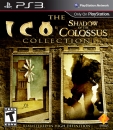BW_JP said:
BW_JP said:
starcraft said:
He hasn't played the Mass Effect series yet.
That is all. |
Mass effect has incredible story telling, but it certainly is not the best at that. It's the complete package that makes mass effect so good.
That being said, this blog, and your post took his comments out of perspective. He's talking about contextual interactive responses to progressing the story. He is not talking about the story in general.
And he is absolutely right. Waggling around to progress a story is going to take me out of the experience because of a number of things ranging from force feedback and the fact that that the remainder of the game is played conventionally (or unconventionally in the case of the wii).
Story telling has nothing to do with how you interact with the game. A good story is a stand alone entity. It can exist by itself without the medium surrounding it. If it can not, then it fails as a story. Mass effect could very well be a novel and its story would be just as good.
Jaffe is a very experienced game designer. He is a master of pure mechanics and has made a wide variety of games from very different genres. has anyone else here played Mickey Mania? that game was spectacular.
That being said, jaffe has experienced presenting a story in a number of different ways. He certainly has the right to speak about story in game design and I think people are really missing his true message.
Jaffe is not trying to tell you that story has not been properly cracked, what he's saying is that until this day there has not been a game where the contextual input from the user affects the story and is believable to the point where it actually adds anything to the story.
Motion controls are really what he is speaking of here, and while they may offer truck loads of game play intuitiveness, they are not an excuse for poor mechanics, and they certainly will not make poor mechanics better.
Just in that same light, motion controls will not make you feel "in" the story. You cannot feel. Natal can not replace the feeling of slapping someone, it will feel unnatural. There's no force response. You're just wagging your hand.
Natal and the motion controllers are fantastic for providing enhancements to solid mechanics. Super Mario Galaxy being the diamond studded crown of this notion. They will not provide enhancements to solid story telling.
What improves story telling? visuals, music, voice acting, character design, environmental design, mood, setting and a number of other emotional aspects of game design.
Jaffe's primary concern, for those that actually listened to him is that he is concerned that the motion control will be played as a key part to improving a story rather than simply spending development costs on those other direct relationships.
He means that until these alternative control schemes are able to actually put you in the game that they will only take away from the other parts of game design.
It is a very valid concern.
|
quoting myself so future readers get the fact that the title and blog post are incorrectly stating jaffe's comments.
|
Good points. I think the two issues are related, though.
First and foremost, good mechanics are needed to allow the player to play, without breaking the illusion. For example, I've just finished a session of Heavy Rain, which has some of the best traditional scenes I've played in a game. But... the control's aren't good enough. The QTEs distract at times, and they reveal the mechanics of the game. They also can't be learnt which keeps you feeling awkward, as often they are just a random serious of prompts. So he's spot on there.
Good story is required, too though, or else why bother trying to have input around a story? Why not just stick to what I think of as 'pure' games like Mario, etc. where there is effectively no story just a very simple premise.
Like I said the best approaches are where you simply play the story. Silent Hill 2 I still find the best from that perspective, as it cleanly seperates gameplay and story. The gameplay can be learnt and works well, you know how to move, how to interact, how to fight. The story unfolds through choices you make while playing without any seperate breaks or prompts.
What's needed (and I'm not saying it would easy) is a way to chose, for example in Mass Effect, whether to slap or not with unprompted action. You just do it. You don't get shown a series of choices, you just act. I understand why having a selection of choices has worked so well, but it has to go if the kinds of stuff he's talking about are to be 'cracked' as he puts it, at least IMHO.
This means controls that can support making the choice yourself unprompted. For example walking up to the annoying person in Mass Effect and either slapping them through choice or talking to them.
Right now, in most games like Mass Effect, Heavy Rain, etc. the gameplay is laid bare, and that's why it feels clunky and obvious. When you play Mario or an FPS you just move and act. The challenge I think is how to bring that to real choices against a narrative with purpose.




















